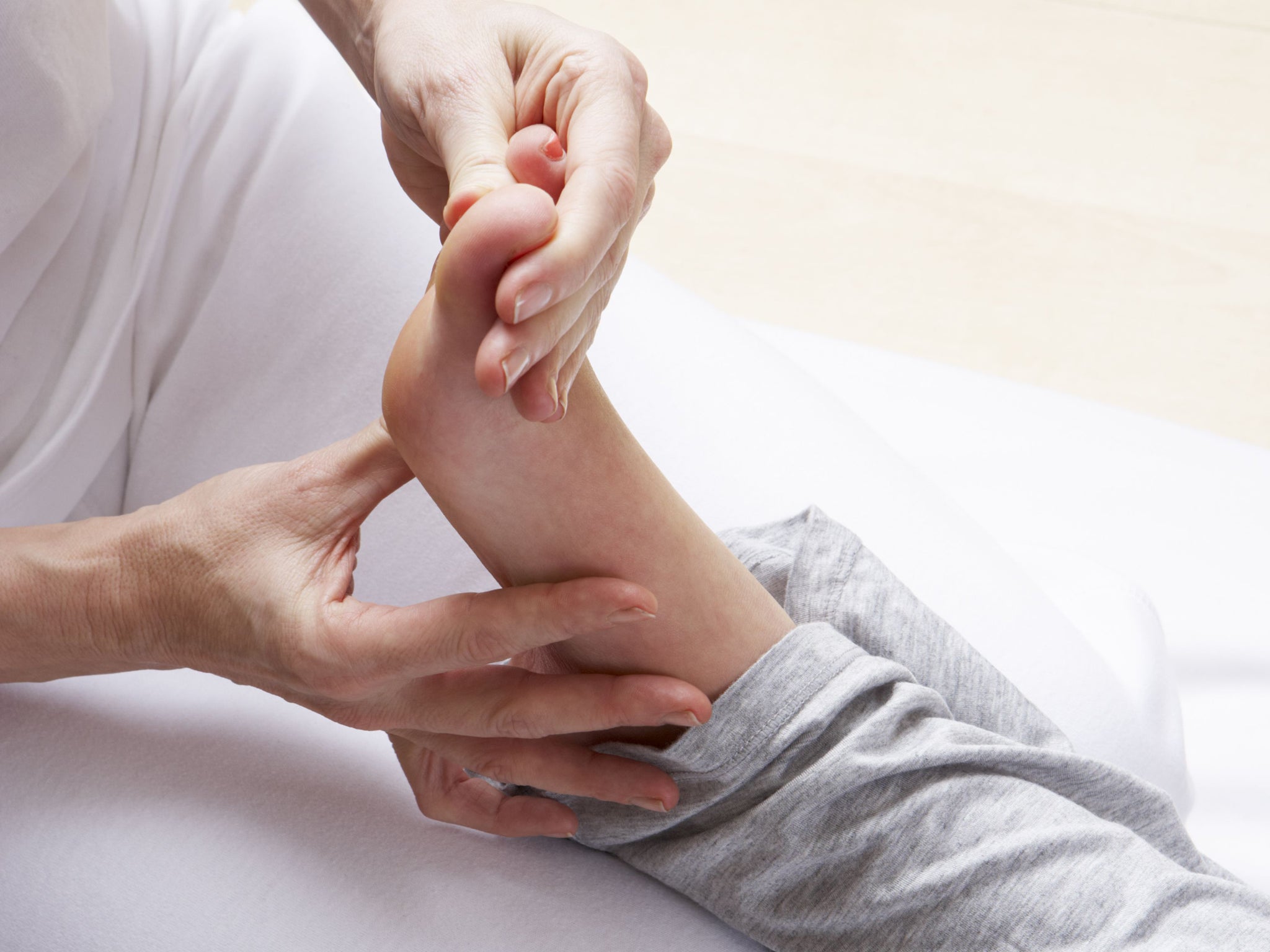Use reflexology to complement drugs in pain treatment, survey findings suggest

Your support helps us to tell the story
From reproductive rights to climate change to Big Tech, The Independent is on the ground when the story is developing. Whether it's investigating the financials of Elon Musk's pro-Trump PAC or producing our latest documentary, 'The A Word', which shines a light on the American women fighting for reproductive rights, we know how important it is to parse out the facts from the messaging.
At such a critical moment in US history, we need reporters on the ground. Your donation allows us to keep sending journalists to speak to both sides of the story.
The Independent is trusted by Americans across the entire political spectrum. And unlike many other quality news outlets, we choose not to lock Americans out of our reporting and analysis with paywalls. We believe quality journalism should be available to everyone, paid for by those who can afford it.
Your support makes all the difference.Reflexology may be as effective as painkillers, according to a new scientific survey.
Researchers at the University of Portsmouth have found that people felt about 40 per cent less pain, and were able to stand pain for about 45 per cent longer, when they used reflexology as a method of pain relief.
Dr Carol Samuel, who is a trained reflexologist and who carried out the experimental procedures as part of her PhD studies, said it was the first time this therapy had been scientifically tested as a treatment for acute pain.
She said the results suggested that reflexology could be used to complement conventional drug therapy in the treatment of conditions associated with pain such as osteoarthritis, backache and cancers.
Participants attended two sessions, in which they were asked to submerge their hand in ice water.
In one of the sessions they were given reflexology before they submerged their hand, and in the other session they believed they were receiving pain relief from a Tens machine, which was not actually switched on.
The researchers found that when the participants received reflexology prior to the session they were able to keep their hand in the ice water for longer before they felt pain, and that they could also tolerate the pain for a longer period of time.
Dr Samuel said: "As we predicted, reflexology decreased pain sensations.
"It is likely that reflexology works in a similar manner to acupuncture by causing the brain to release chemicals that lessen pain signals."
Dr Ivor Ebenezer, co-author of the study, said: "We are pleased with these results. Although this is a small study, we hope it will be the basis for future research into the use of reflexology."
Reflexology is a complementary medical approach, which works alongside orthodox medicine, in which pressure may be applied to any body area but is commonly used on either the feet or hands.
In this study reflexology was applied to the feet.
Dr Ebenezer, from the Department of Pharmacy and Biomedical Sciences, and Dr Samuel used a small study of 15 people to determine whether reflexology would be more effective than no pain relief at all.
Dr Ebenezer said: "Complementary and alternative therapies come in for a lot of criticism, and many have never been properly tested scientifically.
"One of the common criticisms by the scientific community is that these therapies are often not tested under properly controlled conditions.
"When a new drug is tested its effects are compared with a sugar pill.
"If the drug produces a similar response to the sugar pill, then it is likely that the drug's effect on the medical condition is due to a placebo effect.
"In order to avoid such criticism in this study, we compared the effects of reflexology to a sham Tens control that the participants believed produced pain relief.
"This is the equivalent of a sugar pill in drug trials."
Dr Samuel added: "This is an early study, and more work will need to be done to find out about the way reflexology works.
"However, it looks like it may be used to complement conventional drug therapy in the treatment of conditions that are associated with pain, such as osteoarthritis, backache and cancers."
The study has been published in the Journal of Complementary Therapies in Clinical Practice.
A spokeswoman for medical research charity Arthritis Research UK responded to the study with caution.
She said: "Fifteen people is a very small number of people on which to base a claim that reflexology reduces pain, and the study needs to be replicated in considerably larger numbers before it can be substantiated."
PA
Join our commenting forum
Join thought-provoking conversations, follow other Independent readers and see their replies
Comments